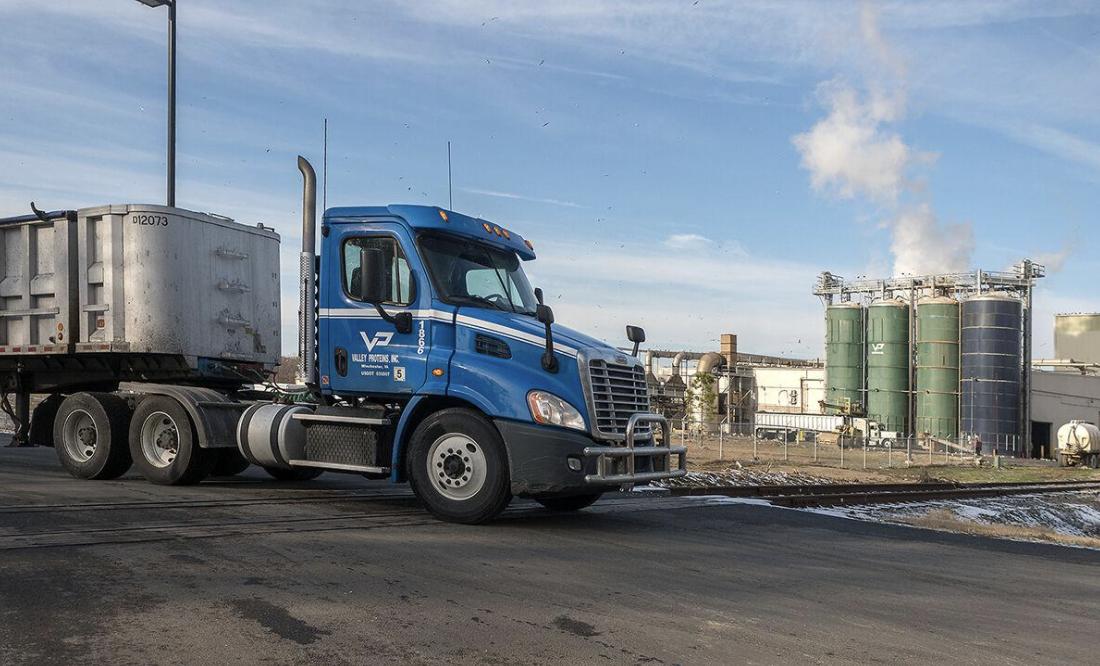Maryland regulators have let a problem-plagued Eastern Shore poultry rendering plant resume operations two days after ordering it shut down because of pollution violations and potential wastewater releases.
Valley Proteins Inc. reached an agreement on Dec. 23 with the Maryland Department of the Environment that allowed it to restart its Linkwood plant but extends for now a ban on discharging any of its wastewater into a tributary of the Transquaking River.
Instead, the interim consent order signed by the MDE and the Winchester, VA-based company requires it to continue pumping wastewater from on-site lagoons and hauling it elsewhere to be treated. It also mandates lowering levels in the impoundments over the next 20 days to reduce the risks of leaks or overflows.
Under the order, Valley Proteins can only resume discharging wastewater to the Transquaking, a Chesapeake Bay tributary, after it has reduced lagoon levels sufficiently and can comply with pollution limits in its permit. It must notify the MDE two hours before resuming discharges and upon any other changes in its treatment operations.
Neighbors and environmental groups have complained for years about the Valley Proteins plant, which takes up to 4 million pounds of chicken entrails and feathers daily from poultry processing plants and renders them into pet food.
The rendering plant is the river’s largest single source of nutrient pollution, which fuels algae blooms and reduces oxygen levels in the Chesapeake Bay and its tributaries below what’s healthy for fish and other aquatic animals.
Mike Smith, the company’s vice chairman, said that partial rendering operations resumed the night of Dec. 23 and that work is under way to repair and restart the wastewater treatment system at the plant.
“Once the system kicks in and treats our water properly, we will discharge again,” he said by email, adding that the company would then also “begin to run again at full production.”
The MDE had ordered Valley Proteins to suspend operations at the Linkwood facility two days earlier, on Dec. 21, after a series of inspections from Dec. 10 through Dec. 20 found multiple violations, including an illegal discharge into a holding pond, discharges of sludge and inadequately treated wastewater into a stream leading to the Transquaking and leaks and overflows from treatment tanks.
Regulators had directed the company earlier to stop discharging wastewater until its treatment system could meet pollution limits in its permit. The Dec. 21 order to suspend operations was prompted by the MDE inspector finding the company’s wastewater lagoons were nearly full.
The MDE’s inspections were triggered by drone images provided to the agency on Dec. 10 by ShoreRivers, a coalition of Eastern Shore riverkeeper organizations, which showed a discolored discharge from the rendering plant’s wastewater outfall.
Earlier this year, ShoreRivers, the Chesapeake Bay Foundation and Dorchester Citizens for Planned Growth notified Valley Proteins they intended to sue over pollution violations at the Linkwood plant, including repeatedly exceeding discharge limits on fecal coliform bacteria, nitrogen, phosphorus and ammonia.
The plant has been operating on an outdated discharge permit since 2006, and in September the MDE proposed new limits that would require upgrading the company’s wastewater treatment system. The state had at one time offered to provide nearly $13 million in public funds to pay for that upgrade, but lawmakers cut the amount in half. The MDE subsequently withdrew the offer and vowed to take enforcement action after finding more pollution violations there. That new permit is still pending.
In the Dec. 23 interim consent order, the MDE directs the company to hire an outside engineer and submit a plan within 100 days for improving the Linkwood facility’s wastewater treatment system. The company agreed to pay fines of $250 per day per violation if it fails to comply with any of the order’s terms.
By Timothy B. Wheeler



Write a Letter to the Editor on this Article
We encourage readers to offer their point of view on this article by submitting the following form. Editing is sometimes necessary and is done at the discretion of the editorial staff.